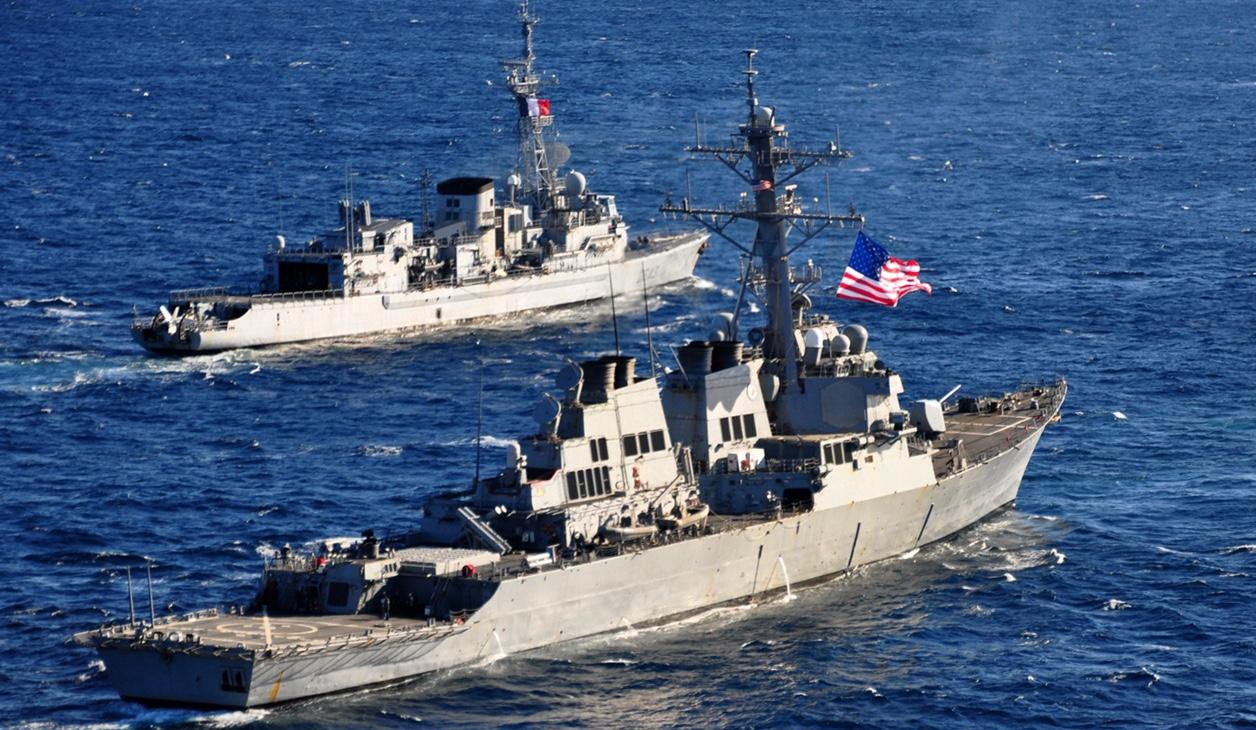US warship enters waters claimed by China
A US Navy guided-missile destroyer during a military exercise in 2013.
Editor's note: This is Chatter, our morning rundown of what you need and want to know around the world. Fortunately for us all, you can have Chatter emailed to you every day. Just sign up here!
NEED TO KNOW:
Iran is not the country so many Americans think it is. Tehran is a bustling metropolitan city with handsome parks, arrays of public art and vibrant neighborhoods. Iran's population of 80 million is highly educated. Women make up half the country’s college students.
Most Westerners find these kinds of revelations astonishing because for so many decades Iran has been isolated, cut off from the rest of the world, and demonized by international press.
But this is all about to change. In fact, thanks to the deal struck in July, everything is about to change. For the first time in almost half a century Iran is going to start emerging from its secluson. And as Stephen Kinzer — one of the world’s leading experts on Iran — argues on GlobalPost today, that’s going to make the world a better, more peaceful place.
In July, six world powers signed a landmark accord with Iran. It strictly limits Iran’s nuclear program and, in exchange, offers the country relief from economic sanctions that have isolated it from the global economy and caused much hardship for ordinary people. “In effect, it reintroduces Iran to the world — and brings the world back to Iran,” Kinzer writes.
The result is the potential for a whole new — more peaceful — dynamic in one of the most volatile parts of the world.
“This became the world’s most toxic relationship. For more than 35 years, hostility between the United States and Iran has been a defining fact of international politics. All of today’s policymakers in Washington and Tehran grew up with it,” Kinzer writes. “Their world is about to change. The new accord is full of political, cultural, economic and strategic potential.”
We lay out all this positive potential in our latest installment of GlobalPost's Longreads on Conflict.
WANT TO KNOW:
The US Navy just sent China a provocative message. Without informing China, an American guided missile destroyer entered the waters near the Spratly Islands in the South China Sea.
Nothing happened. It’s all just military posturing. China claims the islands are within its territorial boundaries, and is building a bunch of military infrastructure there. But the United States, and the regional countries that also lay claim to parts of the sea, don’t agree. So the US Navy sailed right up to the islands, sending the message that it considers those waters international.
“You don’t need to consult with any nation when you are exercising the right of freedom of navigation in international waters,” a State Department spokesman said at a news conference.
In response, China told the United States to “think twice before taking any reckless action.” And last year, when the United States first began to make threats of making such a move, a Chinese editorial warned the United States about getting tied up in another international military intervention. It read: “It is a painful reality that the US has left too many places in chaos after it stepped in, as people are witnessing now in Iraq, Syria and Libya. The South China Sea should not be the next one.”
It’s almost maddening that these tiny specks of islands are causing such a major international row and threatening a potential, if unlikely, clash between the world’s largest navies. But the truth is the islands straddle one of the world’s major shipping lanes. And — surprise — everyone thinks there’s a lot of oil in the seabed below.
STRANGE BUT TRUE:
If you think politics in Washington are partisan, you should check out Beirut. The government there is so deeply divided, it can’t even agree on how to take out the trash.
Since Lebanon’s largest landfill closed in June, garbage has been piling up on the capital's streets. Those who are in charge of the country decided that until they can agree on a real solution, they'll dump the excess waste in industrial areas. Out of sight, out of mind, they perhaps thought.
Of course, that was a terrible idea. It’s now raining in Beirut, and so rivers of garbage are flowing from those industrial areas into residential ones. It’s disgusting, yes, and could be a major health hazard.
It's also a potent symbol of how bad things have gotten in Lebanon. The country is beset by crises on multiple fronts. “It has been without a president for more than a year, electricity is intermittent at best, corruption is rife, the country is hosting more than a million refugees, and militants from Syria threaten the country’s eastern border,” writes GlobalPost Senior Correspondent Richard Hall.
And trash flows through the streets.
We want to hear your feedback so we can keep improving our website, theworld.org. Please fill out this quick survey and let us know your thoughts (your answers will be anonymous). Thanks for your time!
